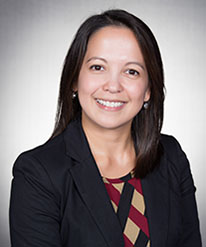Takeaway
Excellent clinicians always strive to make human connections with their patients. This creates the foundation of trust and respect essential to healing.

Connecting with patients | July 24, 2019 | 3 min read
By Jennifer Foster, MD, MBA, Florida Atlantic University
My first grade son has one assignment each weekend, his “TTT,” or Time, Talent, and Treasure. On a blank envelope, the children at his school write a commitment of Time they will dedicate to service for the following week, a Talent that will help others, and then insert a few coins of Treasure that will be donated to those less fortunate in the community.
As wonderful as this assignment sounds, the reality is that as a busy physician-mom, it is typically relegated to last minute on Sunday nights. As we are scrambling to finish, I’m often annoyed that this assignment becomes the barrier to a timely bedtime. However, I was reminded of this assignment during a recent patient encounter on the inpatient medicine service, and how our patients provide us with their own Time, Talent, and Treasure.
Time
The encounter started with a routine oral presentation from a resident, “this is a 54-year-old man who is homeless with no significant past medical history, who came to the ER with severe pain, redness, and swelling over his chin. . . .” The overnight team admitted him for facial cellulitis and an abscess, which had likely started out as a folliculitis from shaving with a dull blade. I was about to meet him for the first time the morning after admission, but before I entered the room, the presentation took a turn, “however, now he wants to leave AMA.”
Ugh. Few things are more deflating to me on the wards than hearing that a patient wants to leave against medical advice. The intern saw the disappointment in my face and nervously continued. “Well, I think he actually has a good reason. . . .”
The police were raiding the park where the patient was living. A friend of his had called and said to hurry and come pick up his belongings, before they were taken away. When I finally entered the room, the panic on the patient’s face was clear, and he was terribly anxious. All of his earthly possessions were in danger, and he was desperate to get to the park. “I’ll come back, I just need Time, I promise,” he pleaded. We discharged him quickly, unsure if we would see him again.
Later that afternoon, the team notified me that the patient had returned to the hospital for readmission. He was giving us the Time we needed to fix his cellulitis and abscess, exactly as he had promised. When we saw him again, he was dejected, shoulders hunched, in tears as he told us that despite his friend’s best efforts, other people had stolen most of his belongings during the raid. I asked what had been taken. He was missing his sleeping bag, a duffel bag with clothes, and reading glasses. He broke down and wept.
That day brought many more admissions that palpably lowered our team’s morale: a middle-aged man with metastatic cancer going to hospice, an elderly woman with a large intracranial hemorrhage causing herniation, and a young man with multiorgan system failure caused by sepsis. As my team of residents and students worked on these admissions, I couldn’t shake the feeling that we needed to do something else for our patient whose belongings had been stolen. Encouraged by the patient’s willingness to return to the hospital and give us more Time, I quickly ran to the store to pick up a few things – a sleeping bag, a duffel bag with clothes, and reading glasses.
The team and I brought these items up to the patient’s room. He was deeply grateful. His anxiety and despair melted away, replaced with peace and gratitude. His cellulitis resolved, and he was discharged.
Talent
Several months passed. Recently in the resident clinic, I was surprised to hear a familiar voice at the nurses’ station. There was our patient, standing tall and proud, handing out flyers promoting his business to our staff. He had established care in our clinic upon discharge and continued his care with us afterwards. As he handed me a flyer, he was so excited to tell me that he now had an apartment, a vehicle, and was starting his own car detailing company. His whole countenance had changed, and his dignity was restored. He had found a way to share his Talent with others.
Treasure
That flyer became a Treasure for me, and it remains in my office as a daily reminder that as physicians, we must always strive to make the human connections that enable our patients to entrust us with their own Time, Talent, and Treasure. As the Hippocratic Oath states: “. . . there is an art to medicine as well as science, and that warmth, sympathy, and understanding may outweigh the surgeon’s knife or the chemist’s drug.”

